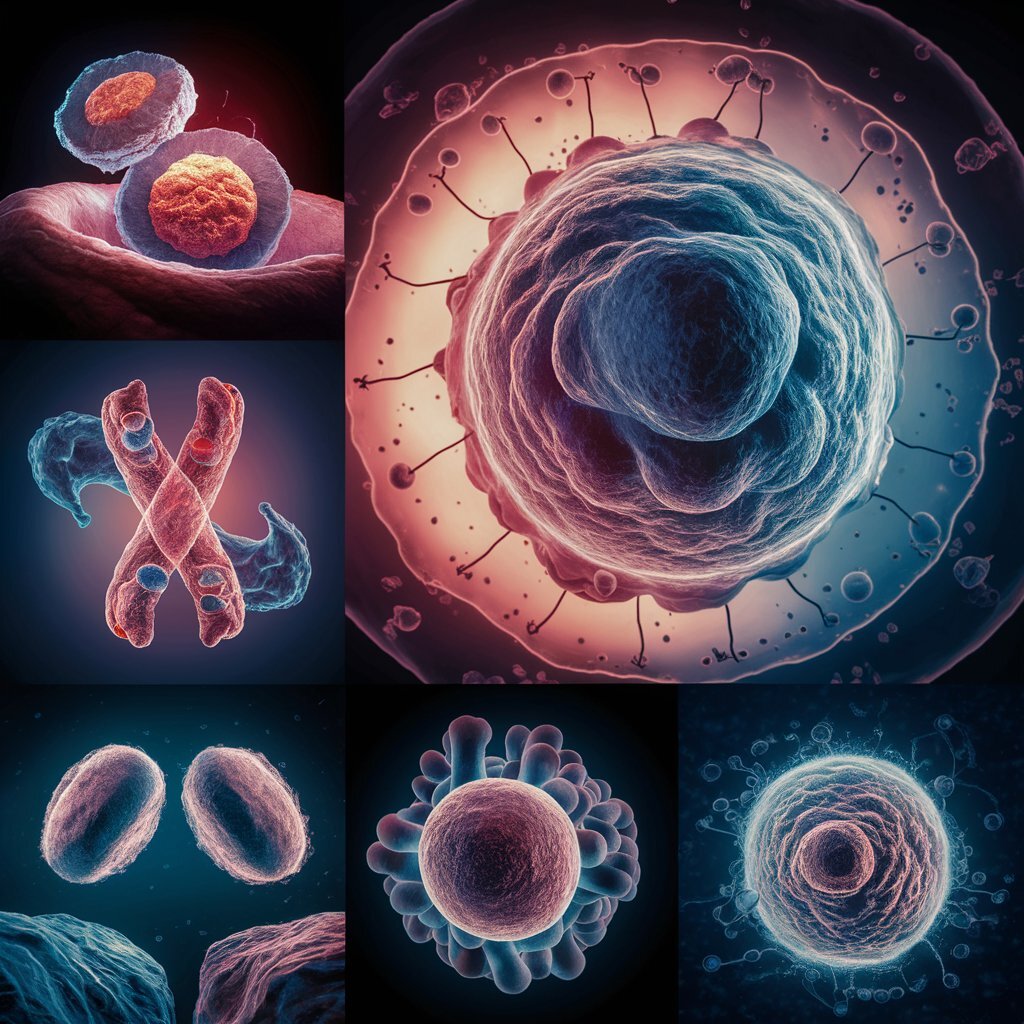
What is interphase? Interphase is the phase of the cell cycle where a cell spends most of its life. During this period, the cell grows, duplicates its DNA, and prepares for division. It's like the cell's "daily routine" before it splits into two new cells. Interphase consists of three stages: G1 (cell growth), S (DNA synthesis), and G2 (preparation for mitosis). Understanding interphase is crucial because it ensures cells divide correctly, preventing issues like cancer. Dive into these 29 fascinating facts about interphase to grasp why this phase is vital for life.
What is Interphase?
Interphase is a crucial part of the cell cycle. It prepares cells for division. During this phase, cells grow, replicate DNA, and perform regular functions. Let's dive into some fascinating facts about interphase.
The Stages of Interphase
Interphase consists of three main stages: G1, S, and G2. Each stage has unique processes and purposes.
- G1 Phase: This is the first stage of interphase. Cells grow and produce proteins needed for DNA replication.
- S Phase: DNA replication occurs here. Each chromosome duplicates, resulting in two sister chromatids.
- G2 Phase: Cells continue to grow and prepare for mitosis. They produce proteins and organelles needed for cell division.
Key Processes During Interphase
Several critical processes occur during interphase, ensuring cells are ready for division.
- DNA Replication: During the S phase, DNA is replicated to ensure each new cell has a complete set of chromosomes.
- Protein Synthesis: Cells produce various proteins needed for growth and division.
- Organelle Duplication: Organelles like mitochondria and ribosomes are duplicated to equip new cells.
- Cell Growth: Cells increase in size, preparing for division.
Importance of Interphase
Interphase is vital for maintaining healthy cell function and ensuring successful cell division.
- Preparation for Mitosis: Interphase readies cells for mitosis, ensuring they have all necessary components.
- Genetic Stability: DNA replication during interphase ensures genetic information is accurately passed to new cells.
- Cellular Function: Cells perform regular functions, such as metabolism and protein synthesis, during interphase.
Interesting Facts About Interphase
Interphase is more than just a preparatory phase. It has many intriguing aspects worth exploring.
- Longest Phase: Interphase is the longest part of the cell cycle, taking up about 90% of the total time.
- Checkpoints: Cells have checkpoints during interphase to ensure everything is progressing correctly.
- G0 Phase: Some cells enter a resting state called G0, where they don't prepare for division.
- Cancer Connection: Disruptions in interphase can lead to uncontrolled cell division, contributing to cancer.
- Chromatin State: During interphase, DNA is in a relaxed chromatin state, making it accessible for replication and transcription.
- Histone Production: Cells produce histones during interphase, which help package DNA into chromosomes.
- Energy Consumption: Interphase is energy-intensive, requiring significant ATP for growth and replication.
- RNA Synthesis: Cells synthesize various types of RNA during interphase, essential for protein production.
- Cell Cycle Regulation: Proteins like cyclins and cyclin-dependent kinases regulate the cell cycle during interphase.
- Mutation Repair: Cells have mechanisms to repair DNA mutations during interphase, maintaining genetic integrity.
Interphase in Different Cell Types
Interphase can vary slightly depending on the type of cell.
- Stem Cells: These cells have a shorter interphase, allowing rapid division and differentiation.
- Neurons: Neurons typically remain in the G0 phase, as they don't divide frequently.
- Cancer Cells: These cells often have a disrupted interphase, leading to uncontrolled growth.
- Plant Cells: Plant cells have a similar interphase process, but they also prepare for cell wall formation during division.
Visualizing Interphase
Scientists use various techniques to study interphase and understand its complexities.
- Microscopy: Advanced microscopy techniques allow scientists to observe interphase processes in detail.
- Fluorescent Markers: Fluorescent markers help visualize DNA replication and protein production during interphase.
- Flow Cytometry: This technique measures cell properties, such as size and DNA content, during interphase.
- Live-Cell Imaging: Live-cell imaging captures real-time interphase activities, providing dynamic insights.
Evolutionary Perspective
Interphase has evolved to ensure efficient and accurate cell division across different organisms.
- Conserved Mechanisms: Many interphase processes are conserved across species, highlighting their importance in cellular function.
The Final Word on Interphase
Interphase is a crucial part of the cell cycle, often overlooked but incredibly important. During this phase, cells grow, replicate their DNA, and prepare for division. Without interphase, cells wouldn't have the necessary components for successful division, leading to errors and potential health issues. Understanding interphase helps us grasp how life perpetuates itself at a cellular level. It's fascinating to think about how much activity happens in this "resting" phase. From DNA replication to cell growth, interphase sets the stage for mitosis and meiosis. Next time you think about cell division, remember that interphase is the unsung hero making it all possible. Keep these facts in mind, and you'll have a deeper appreciation for the complexity and beauty of cellular processes.
Was this page helpful?
Our commitment to delivering trustworthy and engaging content is at the heart of what we do. Each fact on our site is contributed by real users like you, bringing a wealth of diverse insights and information. To ensure the highest standards of accuracy and reliability, our dedicated editors meticulously review each submission. This process guarantees that the facts we share are not only fascinating but also credible. Trust in our commitment to quality and authenticity as you explore and learn with us.


